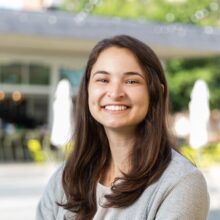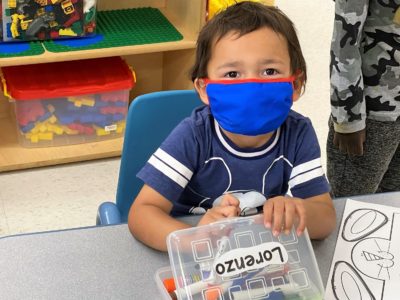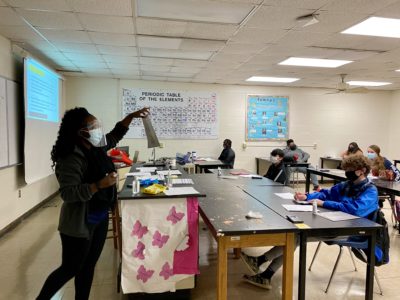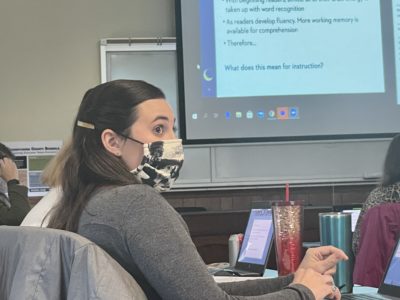|
|
The pandemic forced school to change in unprecedented ways in an instant. Schools went virtual, methods of instruction shifted, and teachers had to pivot to new classroom environments all at the same time. What did teachers learn from all of this change? Which of these changes made should schools keep moving forward?
This week, we’re sharing the stories of three teachers across the state and the lessons they learned teaching through the pandemic. From the flexibility of hybrid classes to the impact of personalized learning, this limited podcast series features reflections on the changes made during the last school year and recommendations for what we take into the year ahead.
Follow along with the series here.
Episode 1 ft. Caesar Campana
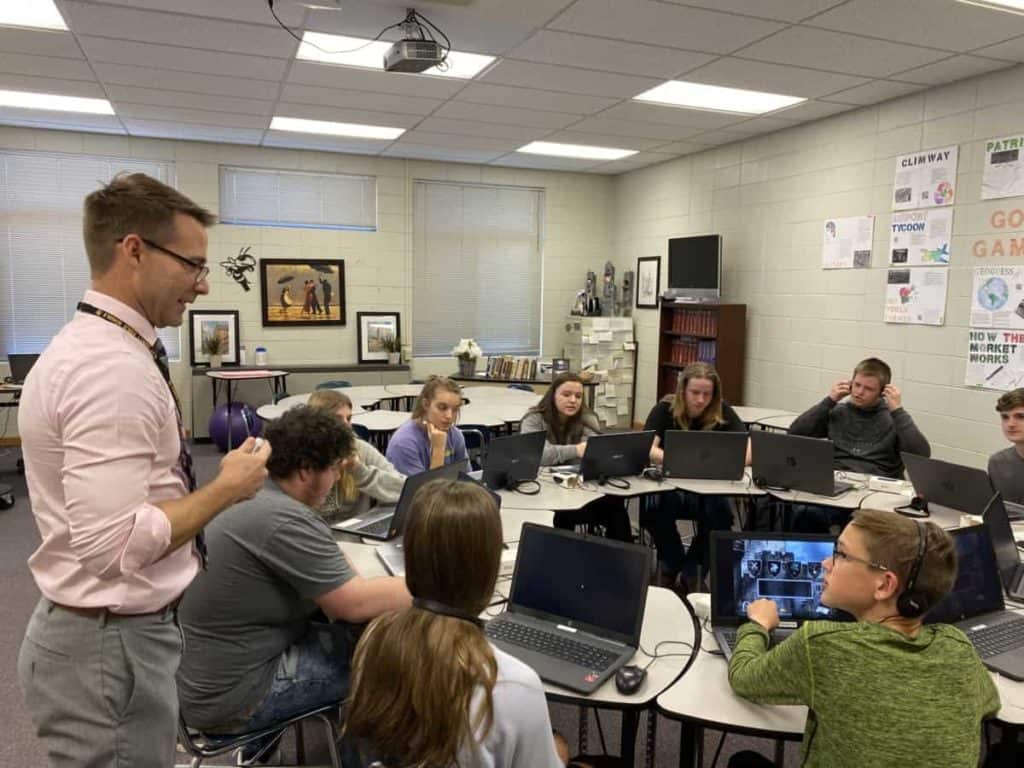

“It has indeed been the strangest year of my career, like it has been for so many people. And that’s in a 20-year career.”
– Caesar Campana, teacher at Hayesville High School
For Caesar Campana, this past year of teaching has turned much of what he knew about education upside down. Campana has been teaching for two decades. Currently, he is a teacher at Hayesville High School in Clay County.
In this first episode, Campana shares his experiences with student engagement throughout the pandemic, how he’s balancing a new hybrid learning model, and his thoughts on the pressure to have his students reading on grade level.
Teaching virtually and witnessing both his student’s triumphs and challenges led Campana to reflect on his philosophy of education and best practices in the classroom.
Campana shared that this past year has left him both “equal parts impressed and depressed.” For some of his students, the autonomy virtual learning provided gave them ample opportunity to dive deep into exploratory learning. For others, the change in instruction left them challenged to stay engaged.
The pandemic also forced him to change his instructional approach, he said. In a typical year, Campana uses an exploratory learning approach, which he said encourages students to draw their own insights and discoveries throughout the learning process. This year, however, he’s had to focus more on explicit instruction — what he refers to as “the sage on the stage” model.
“I cannot wait to get back to a sense of normalcy where group work and investigation and a passion for learning are at the forefront as opposed to my standing up here and telling you what you need to learn,” he said. “I think that fits, more so than ever, in the mode of the 21st century workforce … There are so many problems out there that require divergent thinking.”
When asked what he hopes to see in education moving forward, Campana said,”I would love to see us, in a general holistic sense, be okay with playing catch up,” he said.
Hear more about what Campana learned by listening to episode one of Future Forward here.
